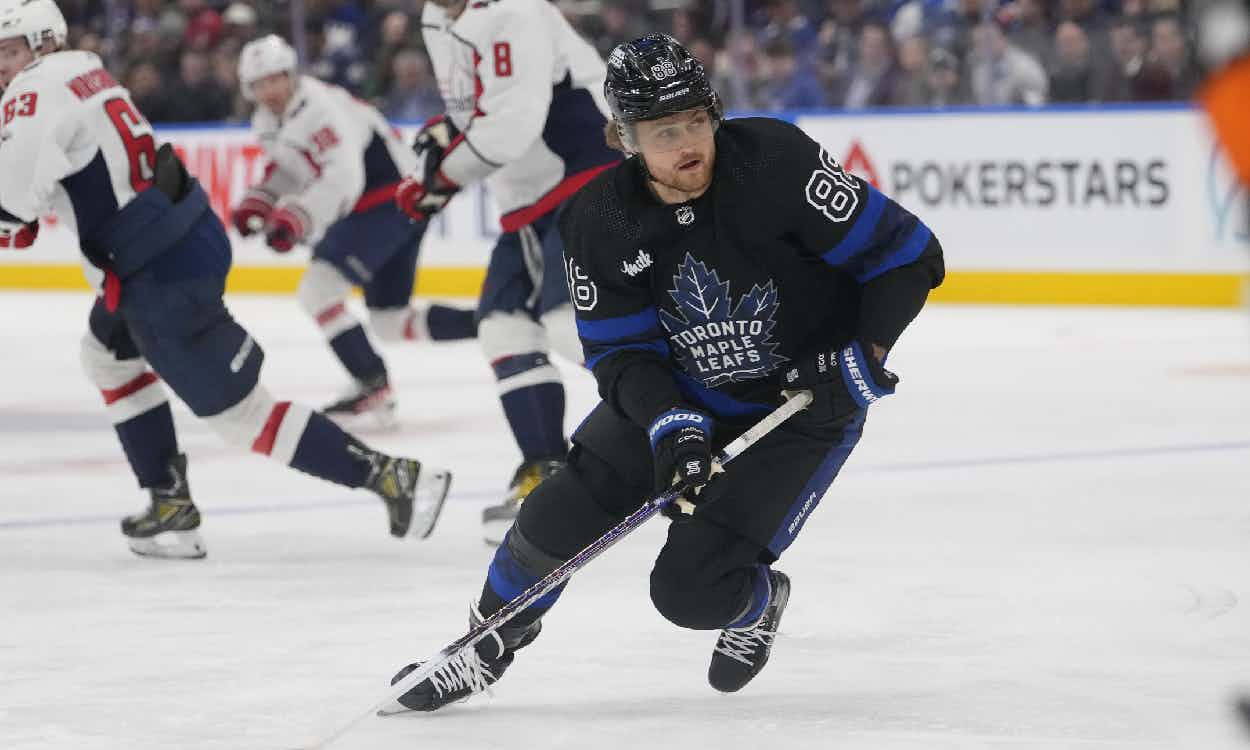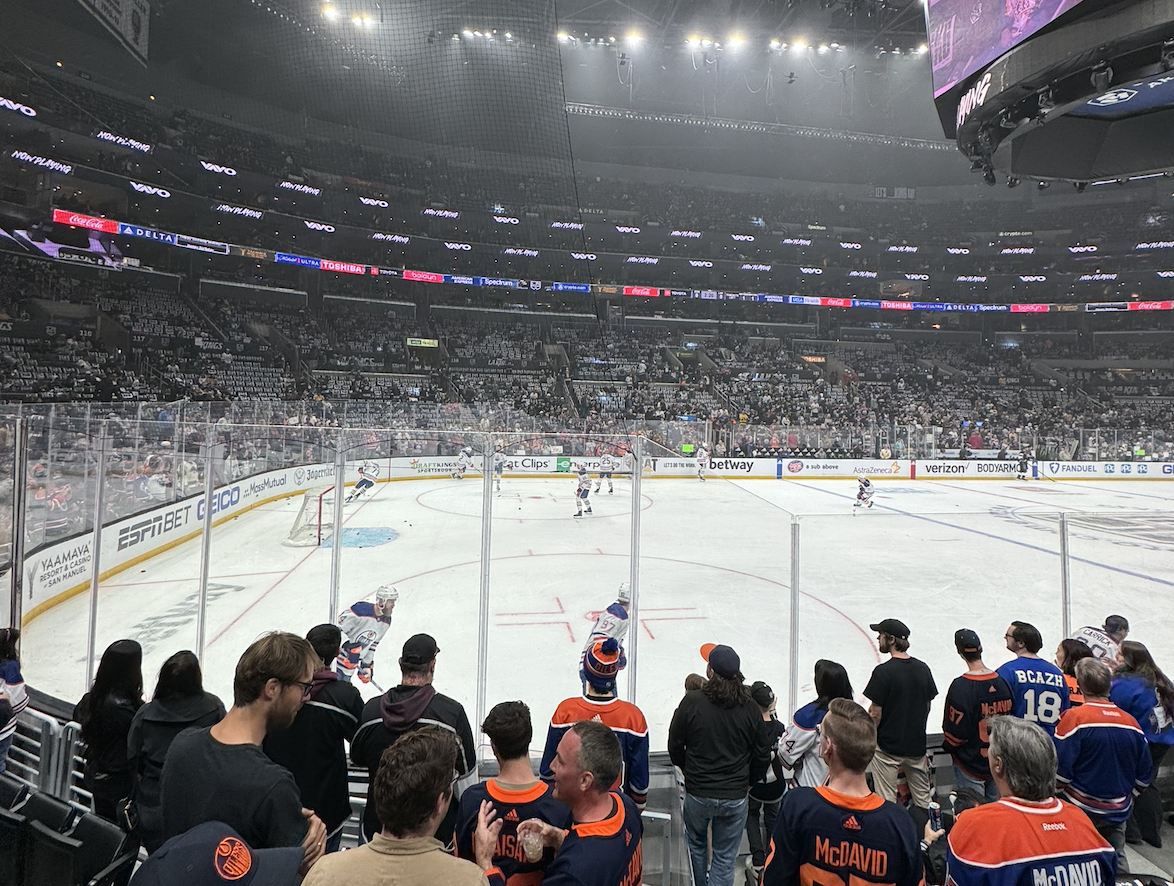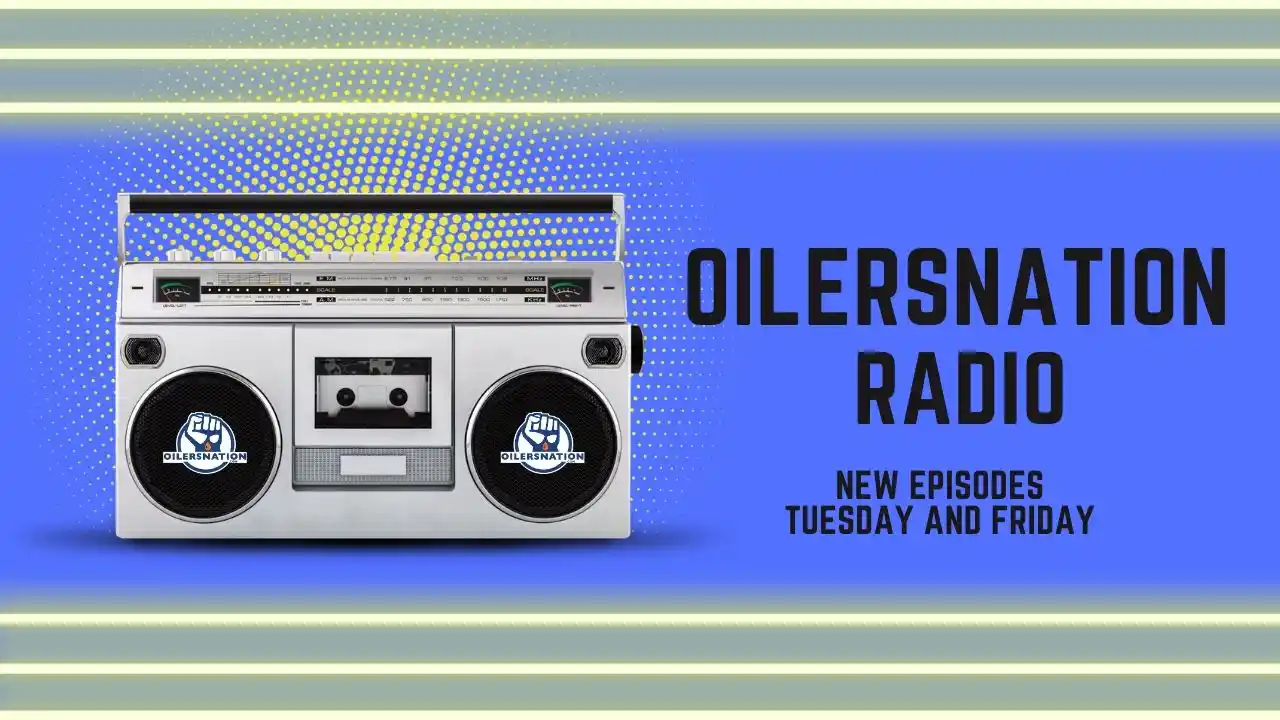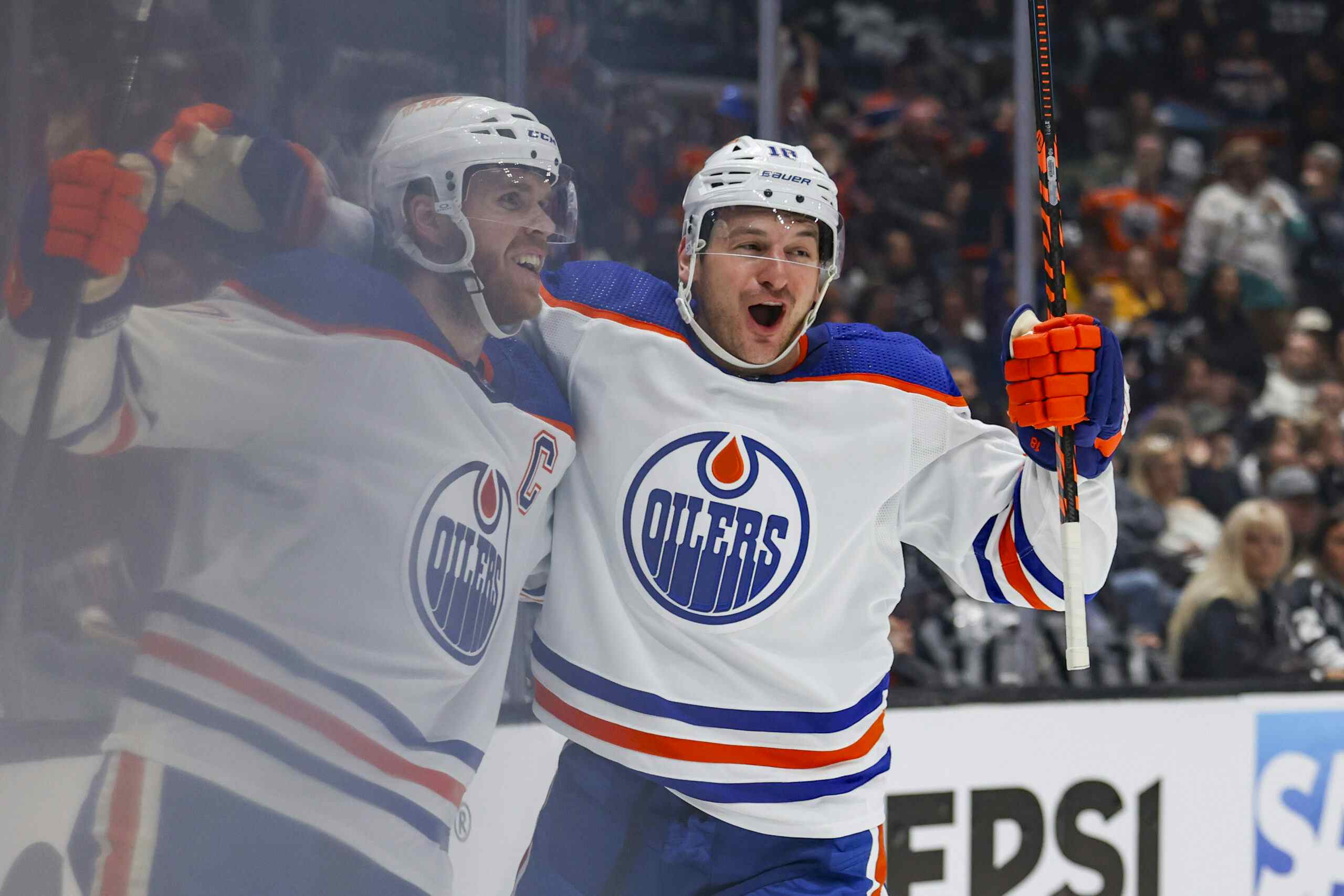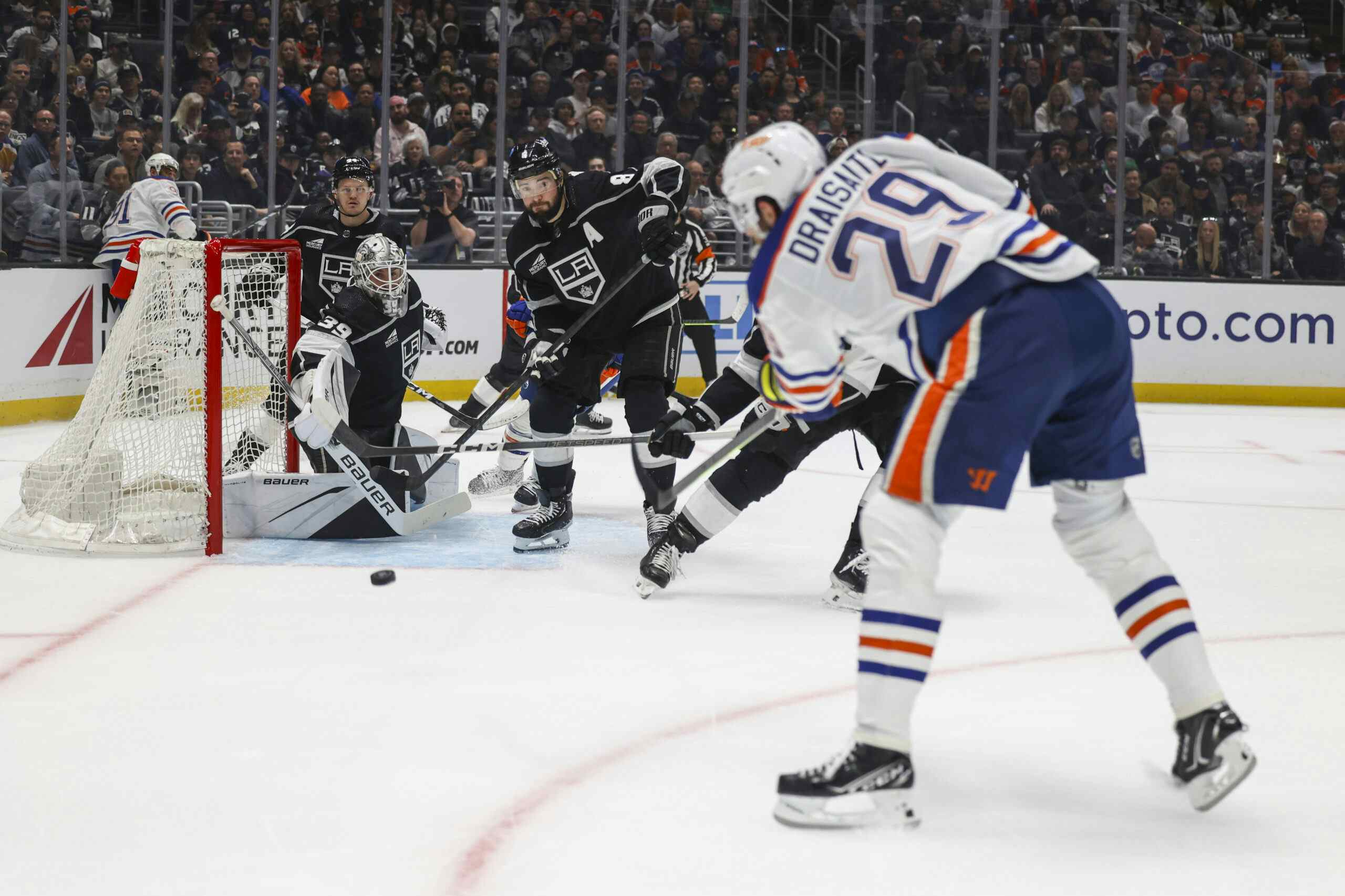The moment of opportunity to trade Jordan Eberle has passed

The Edmonton Oilers may or may not decide to trade Jordan Eberle this summer in a bid to improve at another position. The question is whether it’s even worthwhile at this point; given Eberle’s contract and modest scoring totals over the last three years he’ll certainly still have some value but his stock has dropped precipitously from when the Oilers should have traded him, in the summer of 2012.
Way Back When

Oilers fans will recall that the 2011-12 season was an awfully good one for Eberle. He scored a career-high 34 goals, added a career high 42 assists, and in the minds of many was put on even footing with players like Taylor Hall and Ryan Nugent-Hopkins. Edmonton was so excited that it signed him to a long-term $6.0 million contract a year before his entry-level deal even expired.
The exception to all this adulation was the stats community. Tyler Dellow’s site is now lost to the world, but at the time he predicted significant regression in several categories, projecting Eberle in the 60 point range. My own work was nearly but not quite as bearish; after running two series of comparables and doing some other number-crunching I came out with a prediction of 26 goals and 62 points.
I’m going to reference Justin Bourne for the counterargument, because Bourne’s a bright guy who comes from a more traditional hockey background and he made the mistake of putting together what in my view was the most cogent argument in Eberle’s defence. His full piece mentions age, physical development, development of the team around him and most importantly the fact that hockey is not played by computers. Three quotes provide the gist, though I recommend reading the whole piece because it neatly summarizes the counterargument of the day:
- “I just cannot believe how little this kid’s age has been referenced in the discussion. Like he’s not going to improve?”
- “If 2/3rds of these young Oilers turn out to be what we think they can, I don’t think it’d be possible to play 82 games alongside them and put up 50-60 points with his talent level.”
- “There’s way too much attention being placed on one stat here. The human element matters.”
What’s Happened Since?

Thanks to the NHL lockout of 2012, we weren’t able to see a full campaign from the Oilers or any other team. Eberle posted 37 points in 48 games, for an 82-game pace of 63 points and a 78-game pace of 60 points (recall that he’d played 78 games the year prior during his 76-point season). We’ve had 120-odd games since; what have the results been?
|
As it turns out, Eberle looks a heck of a lot like a 60-ish point player. Those projecting massive improvement based on age have not had their projections realized; he’s now 24 years old and in his fifth NHL season and while he’s a long way from being old he’s also settling in at the level he’s probably going to stay at for a long time to come. The human element certainly does matter, but it did not mean that Eberle’s absurdly high shooting percentage, on-ice shooting percentage and individual points percentage were pure manifestations of his true talent; a lot of things went right in 2011-12 which (predictably) have not continued to go right in the two and half seasons since.
There’s nothing wrong with producing the way Eberle has since 2011-12; very few players in the NHL can do it. But then, the point was never that Eberle was a bad player (which is manifestly not the case). The point was always that his 2011-12 campaign dramatically overstated his worth.
If the Oilers were a team that really believed in statistical analysis, they would have moved Eberle for what almost certainly would have been an overwhelming return in the summer of 2012. Instead they signed him to a deal that would be a bargain if he turned into a superstar but which now looks just okay because that hoped for progression never happened.
Why Are We Talking About This Now?

Primarily, because it’s assumed that the same people who wanted Eberle moved in 2012 want him traded now, and the fact is the key reason for moving him (because he’d just had an unsustainably brilliant season and consequently was massively overvalued around the NHL) no longer exists. It made great sense to move Eberle at peak value; now that teams have a much better idea of what he is it’s a lot harder to justify the trade.
Sure, there’s still a case to move Eberle. He’s a winger, and having a high-end winger is less valuable than having a high-end centre or high-end defenceman. The trouble is that the Oilers aren’t the only team that knows that; if they move Eberle for a pivot they’ll doubtless end up paying a positional premium. The other key argument is that Eberle is small; he’s an undersized winger on an undersized team and it would be nice to upgrade size at the position. Once again, the problem is that the rest of the NHL values size too and once again Edmonton will end up paying a premium if it wants to get bigger.
I’m not saying definitely don’t trade the guy; if there’s a deal out there that offers fair value Edmonton has to think about it. But two and a half years ago the Oilers could have landed a massive return if they had been willing to pull the trigger on a deal; now that return is likely to be a lot closer to fair value and there’s not a lot of point in making a lateral move simply for the sake of making a lateral move.
Interestingly, one of the guys who predicted this now works for the team. It was always a little odd to me that the Oilers brought Tyler Dellow in as a consultant to the coaching staff when it seems clear that having his input at the managerial level could have far more value.
RECENTLY BY JONATHAN WILLIS
Recent articles from Jonathan Willis

